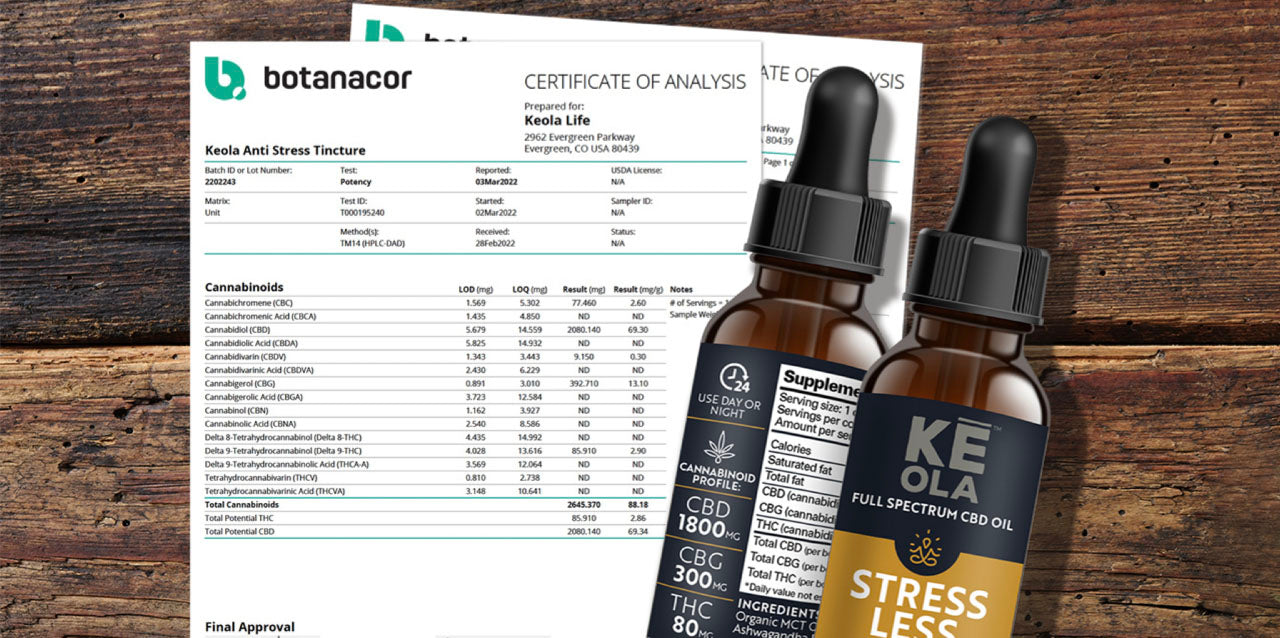Understanding the COA Certificate: A Vital Tool for selecting safe CBD Products
As conscientious consumers, it's crucial to understand the quality and safety of the CBD products we use. This is where the COA certificate comes into play.
In your quest for natural healing and well-being, understanding how to read a COA (Certificate of Analysis) for CBD products is like having a secret decoder for quality assurance. COAs provide valuable insights into the composition and safety of CBD products, ensuring you make informed choices for your health.
Let's dive into the art of deciphering these certificates.
First, what exactly is a COA Certificate?
COA stands for "Certificate of Analysis." In the realm of CBD products, a COA certificate is a document that provides a comprehensive analysis of the product's composition and quality. It's a vital tool for consumers, as it offers valuable insights into what's inside the CBD product they're considering.
In other words, it’s essentially a seal of approval that signifies transparency and quality assurance.
Unpacking the COA Certificate
1. Certificate of Analysis (COA) Definition
A Certificate of Analysis is a detailed report generated by a third-party laboratory that examines various aspects of a CBD product. This report typically includes information on:
Cannabinoid Content:
It specifies the levels of CBD and other cannabinoids present in the product. This is crucial as it ensures that the product contains the advertised amount of CBD and doesn't exceed the legal limit of THC (tetrahydrocannabinol).
Terpene Profile:
Terpenes are aromatic compounds found in cannabis that contribute to its flavor and potential therapeutic effects. The COA often lists the terpenes present in the product.
Purity and Contaminants:
COAs check for the presence of harmful contaminants like heavy metals, pesticides, and solvents. Ensuring that these are within safe limits is essential for your well-being.
2. Importance of COA for CBD
The COA certificate is of paramount importance when choosing CBD products. Here's why:
Transparency:
A reputable company will readily provide COAs for their products. It shows that they have nothing to hide and are committed to transparency.
Quality Assurance:
COAs verify that the product meets quality standards and is safe for consumption.
Accuracy of Label Claims:
It confirms that the CBD product contains the advertised amount of CBD and complies with legal THC limits.
Safety:
By checking for contaminants, COAs ensure you're not ingesting harmful substances.
The basics of how to read a COA Certificate
1. Understanding the Header
Product Name:
This should match the CBD product you're considering.
Batch or Lot Number:
Each batch of CBD products undergoes testing and is assigned a unique batch or lot number.
Date of Testing:
This is when the product was tested.
Lab Information:
Look for the name and contact details of the testing laboratory. Independent
third-party labs are preferred for unbiased results.
2. Cannabinoid Profile
The heart of the COA lies in the cannabinoid profile. Here's what to look for:
CBD Content:
This is the amount of cannabidiol in the product. It should match or be very close to what's advertised on the product label.
THC Content:
Ensure the THC level is within legal limits (0.3% or less in most cases).
Other Cannabinoids:
Some COAs may list other cannabinoids like CBG, CBC, or CBN. This can give you insight into the product's potential benefits.
3. Terpene Profile
Terpenes are aromatic compounds that contribute to CBD products' flavor and potential therapeutic effects. COAs may list the terpenes present in the product, allowing you to understand its aroma and potential benefits better.
4. Contaminants:
COAs also check for harmful contaminants. Pay attention to heavy metals: Ensure levels of heavy metals like lead, cadmium, and arsenic are within safe limits.
Pesticides:
Look for results indicating the absence of harmful pesticides.
Solvents:
Ensure that no harmful solvents are used in the extraction process.
5. Pass/Fail
Many COAs will clearly state whether the product has passed or failed specific tests. A "Pass" indicates that the product meets safety and quality standards. A "Fail" should raise red flags.
Reading a COA certificate for CBD products may seem daunting at first, but it's an essential skill for anyone interested in natural healing and well-being.
Actual COA sample and what to look for:









